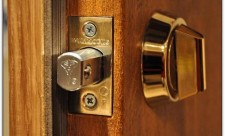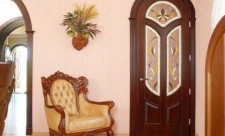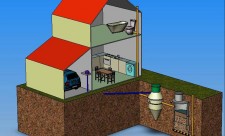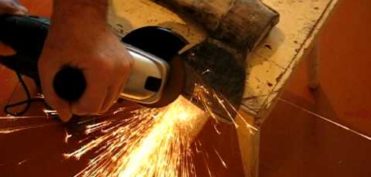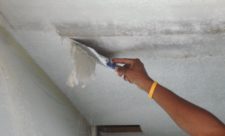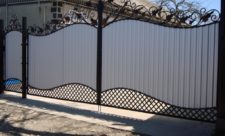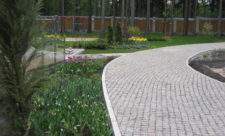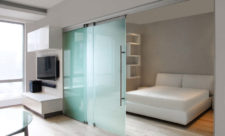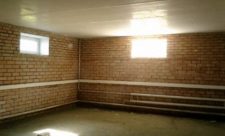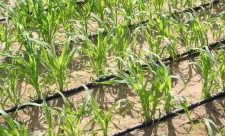
How to shove wallpaper with your own hands Wallpaper,Walls
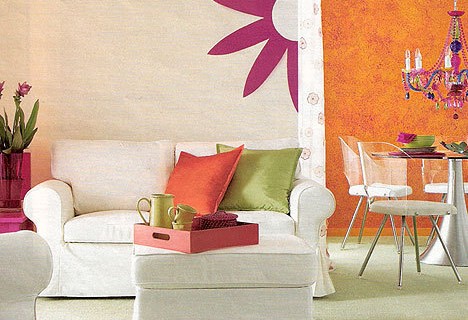
Change the appearance of the room can simply change the wallpaper. This wonderful finishing material allows you to play the most brown designer fantasy. A huge number of types of wallpapers based on sale, and simplicity of treatment with them, allow you to create your own individual style with your own hands.
Types of wallpaper
When entering the wallpaper store, you are lost from the variety of samples represented. After all, wallpapers are:
- paper
- acrylic
- fliselinovye
- vinyl
- fiberglass
- metallized
- quartz
- cork
- textile
Paper wallpaper
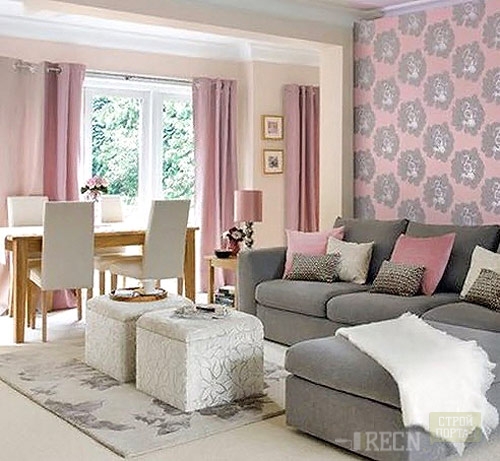
The most inexpensive and popular. There are single-layer (simplex) and made of two or more layers (duplex). Under painting use structural wallpapers that create relief. The small irregularities of the walls embedded wallpaper are well masked. How to punish paper wallpaper? It is necessary to do it extremely carefully, since the canvas easily rushes. Wallpaper sheets are missing with glue, impregnate a few minutes, then glued to the wall.
Acrylic wallpaper
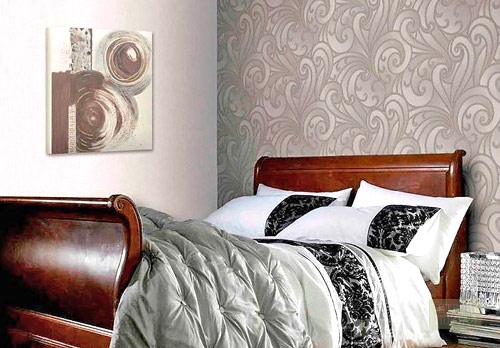
The basis for them is paper, on top of which an acrylic layer is applied. Wallpapers can be carefully soaked with warm water. They are suitable for painting. Clause acrylic wallpaper as well as paper.
Fliselinova wallpaper
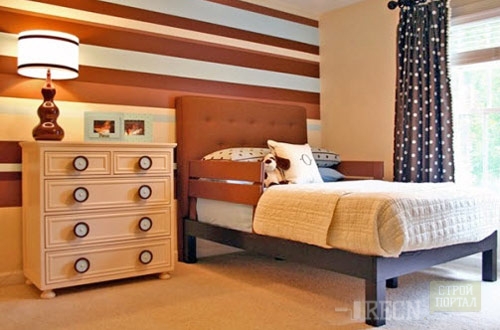
Made of cellulose fibers, "breathable" and waterproof. Used as the basis for vinyl wallpaper. How to break the fliesline wallpaper? Very easy. They are most comfortable in sticking, because glue is applied only on the wall. They cannot be washed, with the exception of vinyl on a fliesline basis.
Vinyl wallpapers
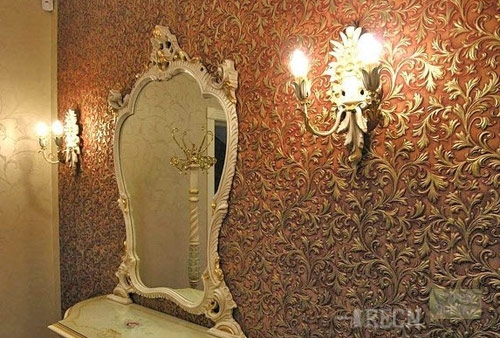
PVC coating is applied on a paper or fliesline base. This is how heavy wallpapers are created, not afraid of washing, the effects of chemical preparations and UV radiation. They are perfectly masked the irregularities of the walls. How to break the vinyl wallpaper? Just as paper. The glue is applied directly to the canvas.
Fiberglass wallpaper
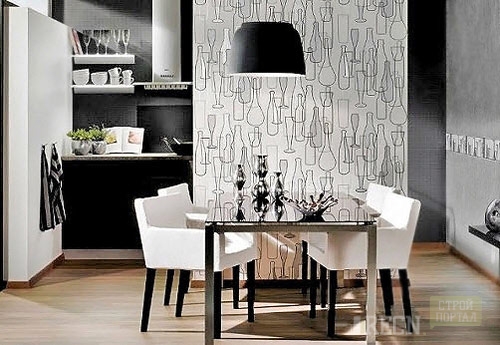
Made of fiberglass woven. Durable, heavy, not afraid of moisture and detergents. Perfect under painting. In this case, glue is wicked only by the wall.
Metallized wallpaper
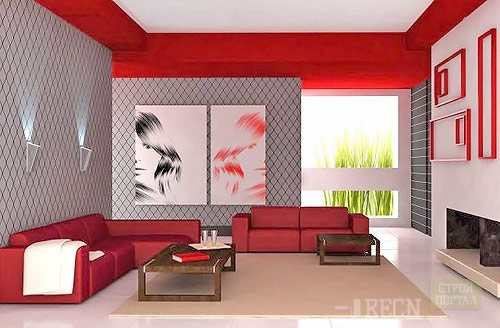
A thin layer of aluminum foil is applied on a paper or fliesline base, which is then painted or embossing is made on it. Very durable, do not burn and moisture is not afraid.
Quartz wallpaper
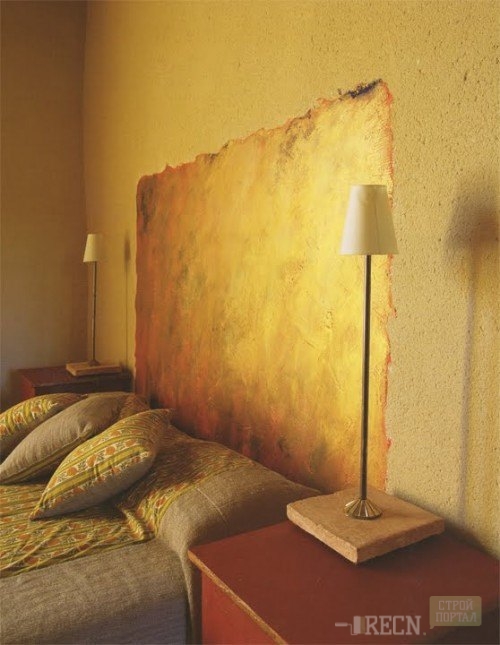
Have a paper or fliesline base. The second layer is the painted quartz sand. Suitable under painting. Glue like all heavy wallpaper.
Natural wallpaper
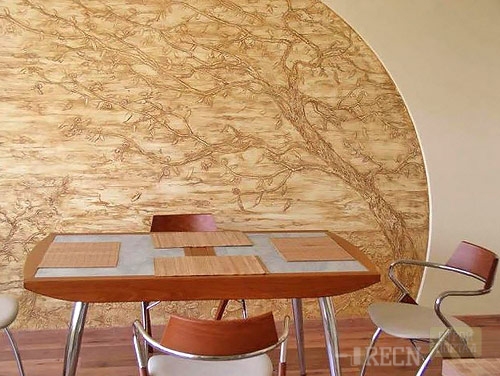
Made from natural materials - traffic jams, bamboo, leaves, wood fibers; Heavy, fear moisture. They are glued only with special acrylic glue, which is applied to the wall. Before this, wallpaper should be closed around two days.
Textile wallpaper
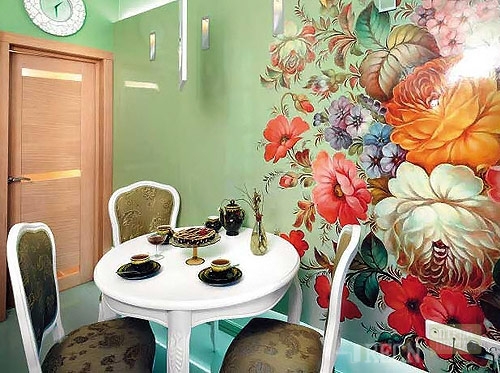
First layer - paper or fliesline, second - flax, cotton, jute, velor, silk. Move from threads or finished canvas. Glued on painted walls or paper lining. It is important to shove the wallpaper correctly, the price of them is quite high.
Preliminary actions
Calculation of the number of wallpaper and glue
The number of wallpaper depends on the height of the walls, length and width of the roll, the need to combine the pattern. So, with the height of the walls of 2.5 m and the length of the wallpaper in a roll of 10.5 m, we have four canvases, if the drawing is not needed to align and three, if it is necessary to combine it. The remaining piece use above the door or window. The number of cloths we obtain when dividing the magnitude of the perimeter of the room to the roll width. We also buy suitable wallpaper adhesive, consumption directly depends on the number of wallpaper.
Surface preparation
Before you begin to stick the wallpapers, the walls align with putty and sandpaper, after the primer.
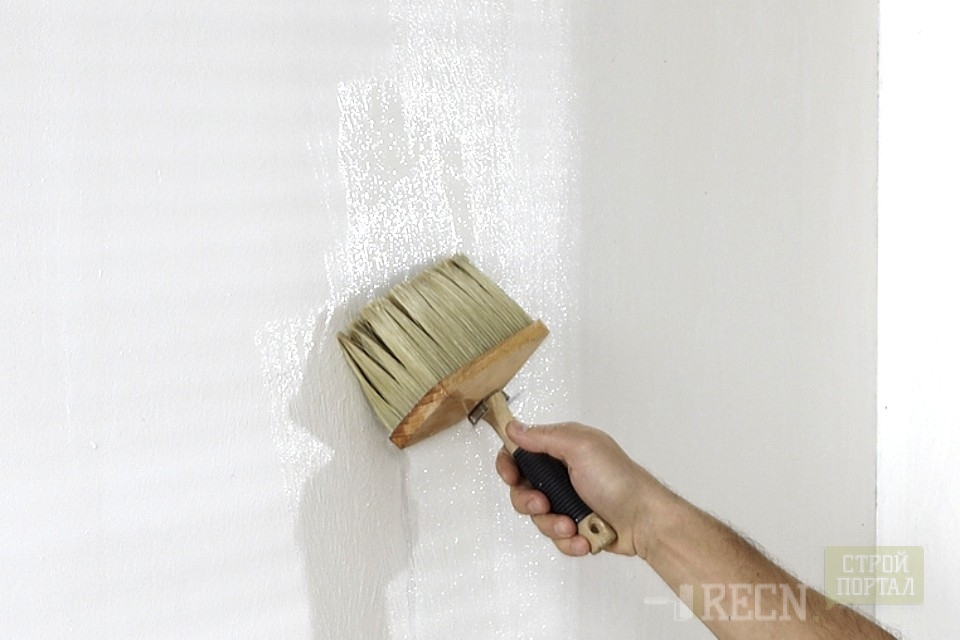
You can use a special primer or diluted with a liquid condition.
Preparation of instruments and materials
To simplify the task, prepare the tools in advance that may be needed in the process of work, namely:
- ladder
- bucket for glue
- brush
- Rubber roller
- Plastic spatula
- Hard brush
- stationery knife
- pencil
- Level or plumb
- roulette
- scissors
- Rag
- Clay wallpaper
- wallpaper
Cooking glue
It is better to argue about what wallpaper glue is meaningless. For each type of wallpaper, its own. We buy suitable wallpaper glue, how to breed it - you can read in the instructions. It is usually dissolved in cold water, slowly pouring and thoroughly stirring so that the lumps are not formed. After that, we give the solution.
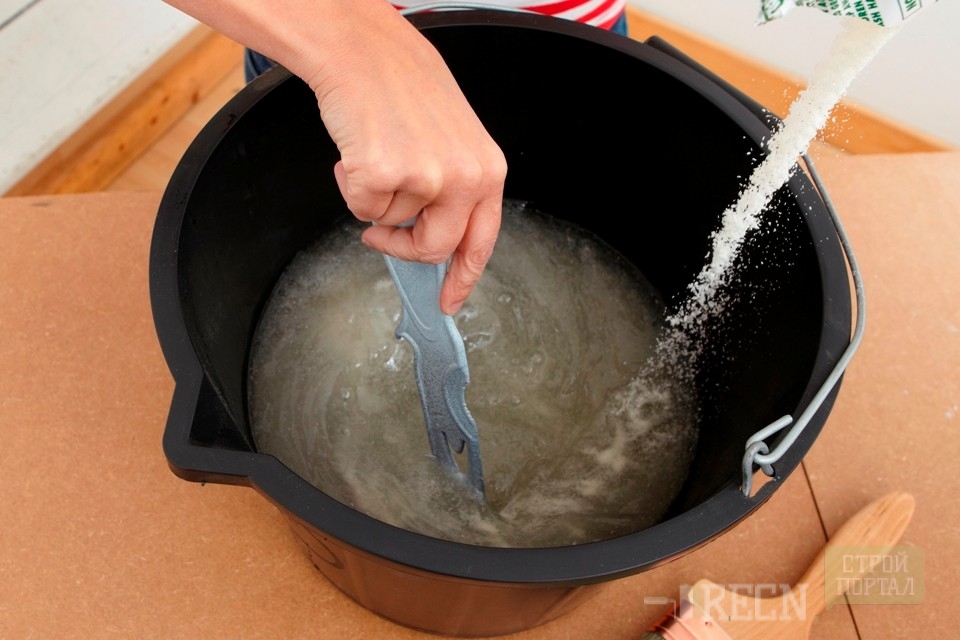
Stowing wallpaper
Pre-cut the wallpaper with a small allowance (8-10 cm) on the plinth and the ceiling. We do this with the help of a stationery knife or scissors.
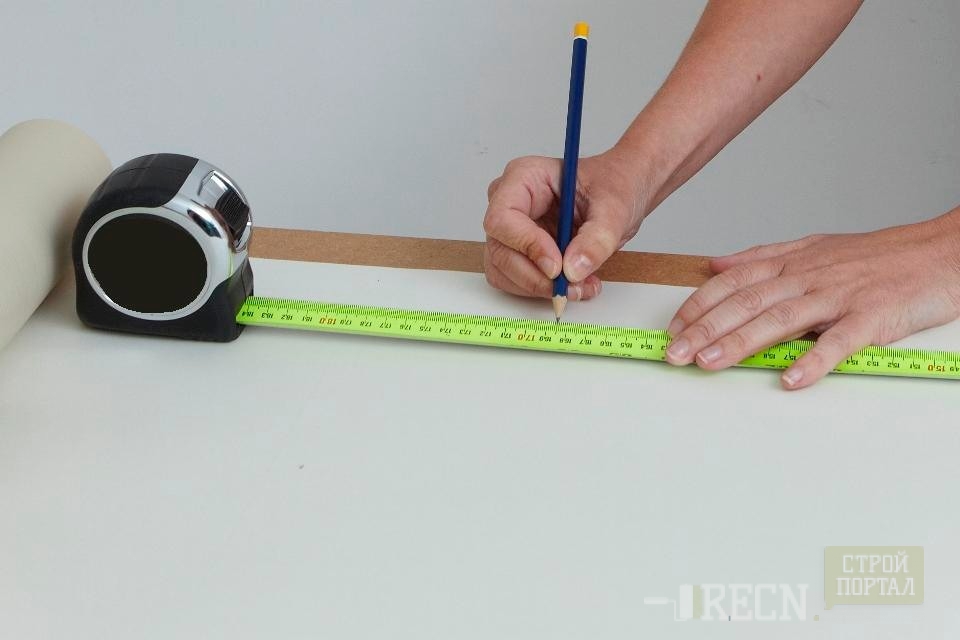
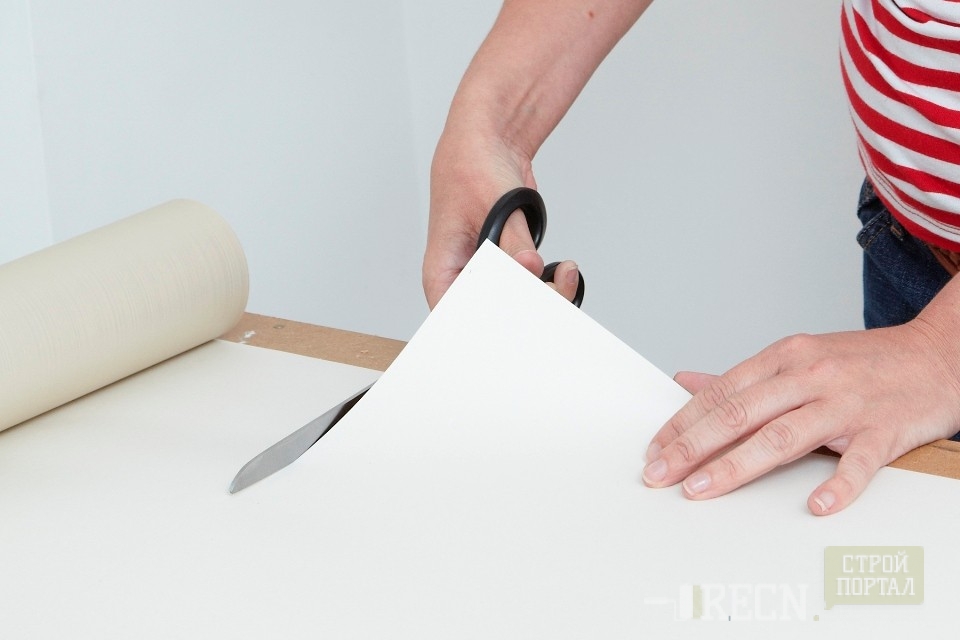
Be sure to take into account the displacement step. To figure out how to switch the wallpaper correctly, you should read the insert with the instruction.
Thin wallpaper can be glued to the brass and jack, thick - just jack.
Retreat from the angle is slightly less than the width of the roll. With the help of a plumb or level, we mark the vertical to which we will customize the first sheet.
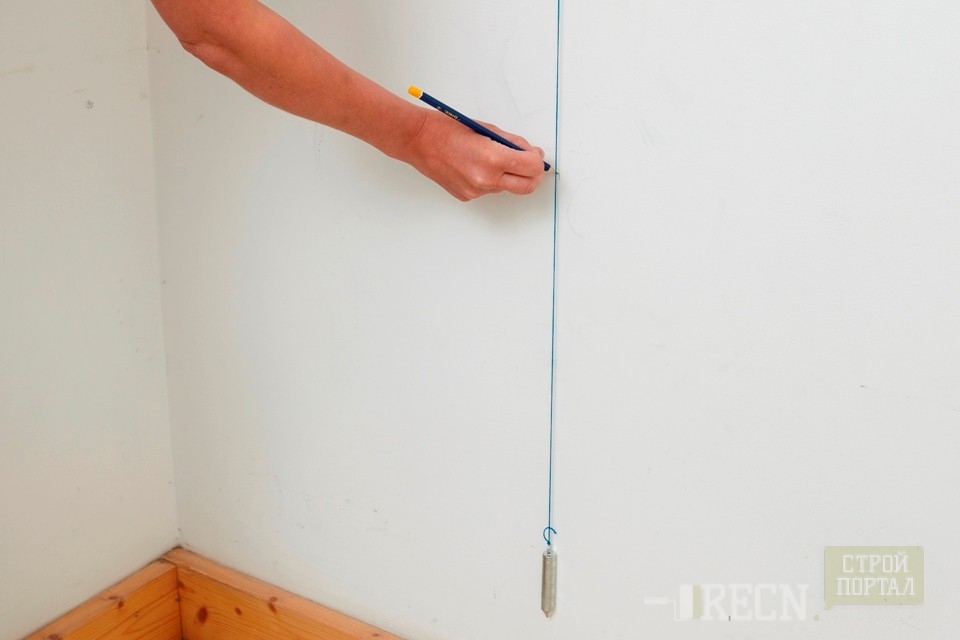
Depending on the type of wallpaper, we wash the canvas (or wall) with glue, fold it on both sides to the middle and remove it for time so that it is soaked as indicated in the instructions.
Then we climb the cloth and glue the wall, starting from above, aligning vertically. Near the ceiling, leave a small battery.
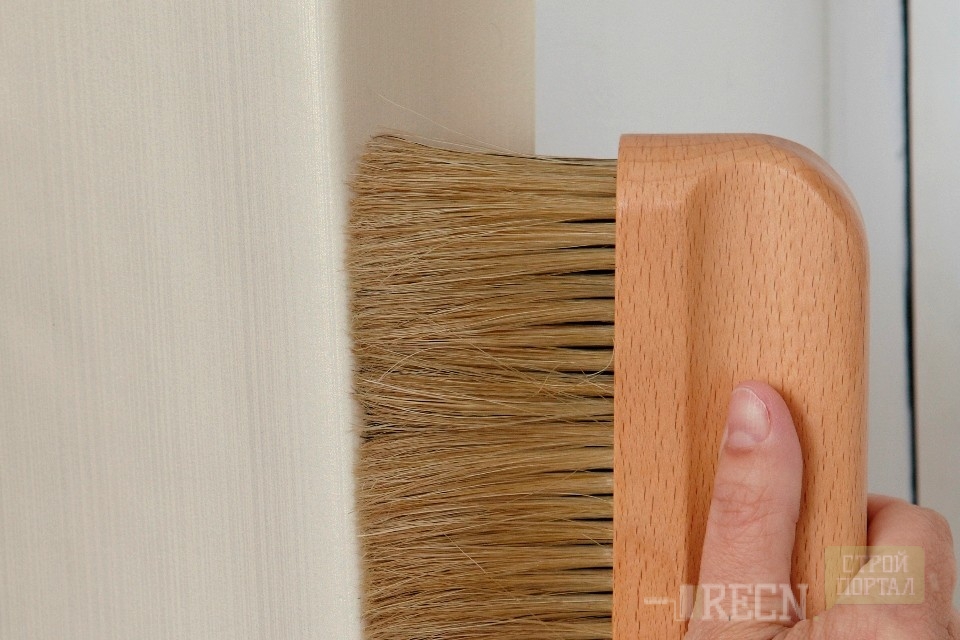
With the help of a rigid brush or plastic spatula, you save air and remnants of glue, starting with the middle to edges and to the bottom. The joints are well rolled by a rubber roller.
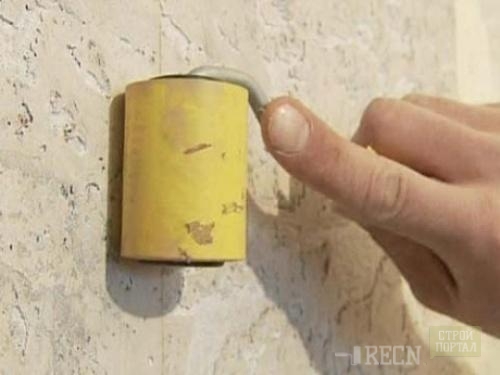
After the first sheet is glued, we drive the top of the face and cut off excess. The edge of the sheet again wakes glue and press it well.
The following strips are glued in the same way as the first, while combining the drawing and the place of the junction of the canvas.
Above windows and doorways glue the same way. Supleny cut off.
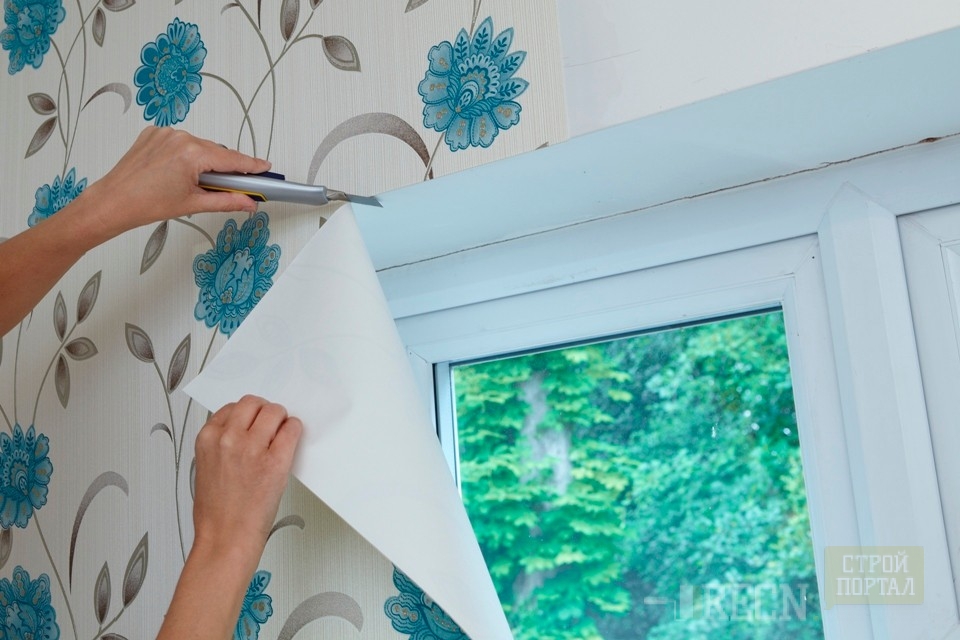
By gluing wallpaper in the most problematic places, add a bit of plow to the wallpaper glue.
Warming sockets or switches, turn off the electricity and remove the boxes. In these places, cut out the walls so that the edges hide into the box.
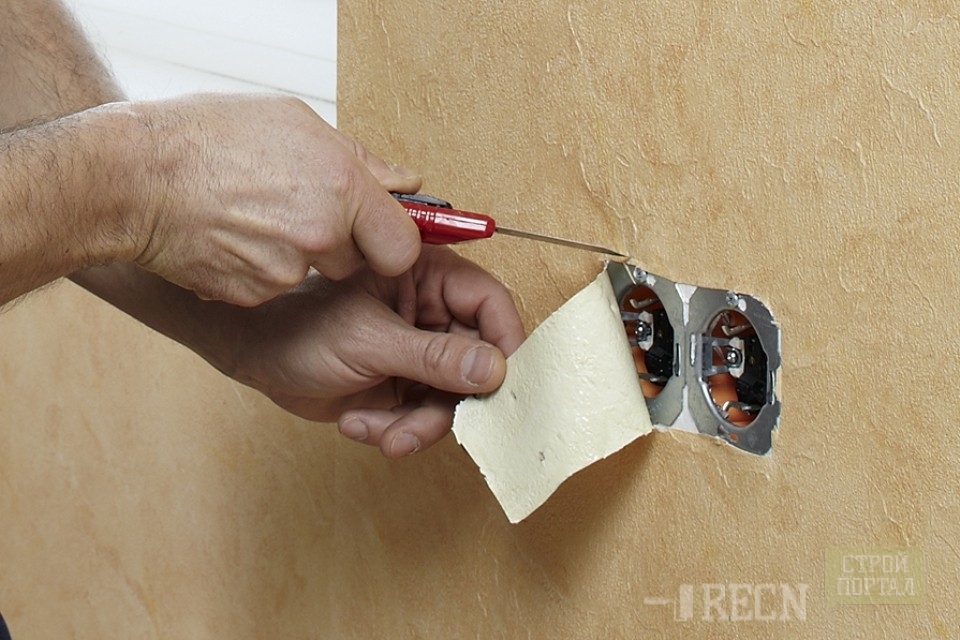
From the bottom of the science we get under the plinth.
Important
When sticking wallpaper under the baguette, you need to monitor that the joint is exceptionally smooth.
If the wallpaper is heavy, the frieze is better to stick not on top of the wallpaper, but an online jack. Therefore, the place is left for the frieze, the horizontal line is stated to which the wallpaper is width.
During walls of walls, wallpapers must be closed and the heating devices are turned off. Wallpaper need to give well to dry in a natural way.

